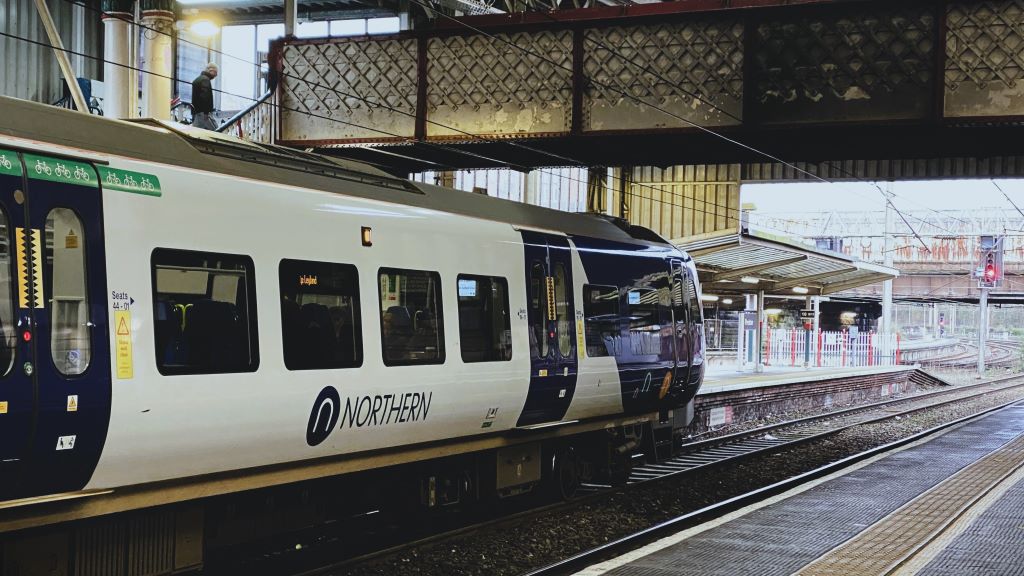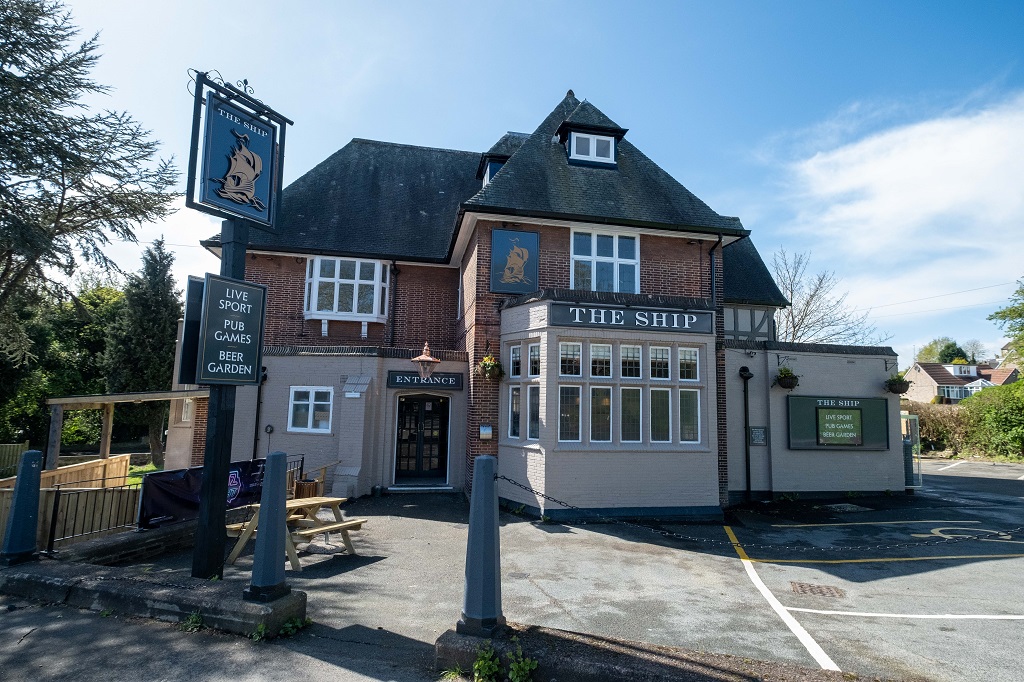The Subplot
The Subplot | Who is driving Northern transport policy?
Welcome to The Subplot, your regular slice of commentary on the business and property market from across the North of England and North Wales.
THIS WEEK
- Asleep at the wheel: is anyone driving Northern transport policy?
- Elevator pitch: your weekly rundown of what is going up, and what is heading the other way
ASLEEP AT THE WHEEL
Who is driving Northern transport policy?
A new regional devolution deal leaves questions unanswered.
Woodchurch in Wirral, Carr Mill in St Helens, and Daresbury in Halton are lined up for new Merseyrail stations by Liverpool City Region Mayor Steve Rotheram.
Rotheram announced the new stations days after levelling up secretary Michael Gove gave final approval to ‘level four’ devolution deals for Liverpool City Region, West and South Yorkshire, much of which is about who runs transport.
Ticket to ride
In the last few days, ministers published a technical paper on how the transport elements of the devolution deal will work. The aim is that each region has a single transport funding settlement; some more wiggle room for funding bus services and introducing zero-emission buses; some more oomph on integrated ticketing; some thoughts on local key road routes and how they are maintained to improve traffic flow and reduce congestion; some leeway on taxis and private hire; and encouragement to deal with pavement parking. These are all things most people would assume local councils can already do, but can’t.
Stations mean property
The big test is rail because, as the government’s level four offer documents concede, property development around new or growing railway stations is a big economic opportunity. Everything turns on a new partnership between city region mayors and Great British Railways to support the “identification of worthwhile opportunities for regeneration, commercial, and housing development in and around rail stations. The establishment of GBR creates an opportunity to increase commercial income and the local responsibilities of the eligible institutions will help to realise this.”
The quango that isn’t there
All of which is dandy, the only problem being that Great British Railways doesn’t yet exist. The details are all very Yes, Minister. The idea was floated in May 2021, and last year Derby was chosen for the HQ. A draft bill was published a few weeks ago that would, if it one day turned into a real bill, and that turned into an act, create the body. So far that’s it, except that the non-existent body with no start date has 200 staff and, soon, a highly-paid chief executive, if newspaper reports are accurate.
Alas, poor HS2
The mood is already poor, thanks to the HS2 cancellation. Last month, the Northern Powerhouse Partnership was fuming about the failure of the government to commit to the 7.5 miles of tunnel between Manchester Airport and the city centre, which was planned for HS2 but is also needed for the Trans-Pennine Northern Powerhouse Rail. In theory, Transport for the North ought to be the answer to the “who is in charge” question but in practice, as the fates of HS2 and NPR show, it hasn’t any influence.
Plan, mess up, repeat
A similar unhappiness is bubbling away in the South where the economics of a £6bn-£7bn rail line between Oxford and Cambridge are in doubt. “It is not yet clear how the benefits of the project will be achieved nor how it aligns to other government plans for growth in the region,” said the National Audit Office, pointing a finger at Whitehall by calling for “stronger strategic alignment across government.” In November this year, the NAO is due to publish a blockbuster report into how the UK does its railway thinking, including a look at the non-existent Great British Railways: it’s sure to be a gripping read.
More on those station-related development opportunities
Yesterday, the House of Commons Transport Committee had a go at working out who was in charge of strategic transport policy. Members quizzed Dame Bernadette Kelly, chief civil servant at the Department for Transport, and Will Garton, director of levelling up in Michael Gove’s department. Garton was asked how we incentivise development around railway stations. He said work is ongoing now.
Next, members asked: Is the economic uplift of that development being included in the business case for new rail schemes? At which point the civil servants began to squirm, admitting these were good points, maybe some technical work had been done, said Kelly. But the answer was scarcely encouraging if you’d like to see transport policy turn into new development and economic growth.
All in good time, minister
Kelly confessed that the business case methodology the department uses to make rail investment decisions “is not good at capturing…long-term strategic benefits.” MPs mildly suggested that maybe this way of doing it wasn’t fit for purpose, particularly for projects outside London. “We do need better ways to measure transformational benefits,” she conceded. Garton agreed they could probably do better if they could find metrics that worked. “It’s hard to do in a technically accurate way,” he added. It all sounded very Sir Humphrey, and not very urgent. If anyone is in the driving seat of UK rail policy, they weren’t at that meeting.
 ELEVATOR PITCH
ELEVATOR PITCH
Going up, going down. This week’s movers
A bad week for nerves in the slightly tense Manchester office market, and another iffy week for those seeking value for money in the regeneration game. Doors closing, going down.
 Manchester’s familiar faces
Manchester’s familiar faces
Another piece of the Sir Richard/Sir Howard regime at Manchester Town Hall is on the way out (if Julie and David Roscoe will forgive the expression). The pair have been respectively director and deputy director of planning at Manchester City Council for more or less ever. After 50 years in the town hall, they will move to shorter working hours from April as part of a phased succession plan.
Although decades in the job left some property noses out of joint – most temporarily, a few permanently – the Roscoes won deserved plaudits for being commercially aware and property market-savvy. The balance of supply and demand, now and in the future, was never far from their minds, nor their reports to council committees.
They step back as the city council ponders a new economic strategy, which appears to head in a different direction. It turns on a Resolution Foundation thought experiment about what kind of office space you’d need if you wanted to retain the same proportion of graduates as London (Subplot, 8 February). The office market is nervy about this, not just because Manchester isn’t London, but because it would mean consenting several times more office space than the office market has ever, ever managed to absorb. Expressions like “flood the market” and “does not make commercial sense” are whispered by the kind of people who are usually the town hall’s firm and unapologetic friends. It’s an anxious context for the Roscoes’ departure.
 Regeneration games
Regeneration games
The Budget has been delivered. The anaylsis begins. Will any of it make a difference to levelling up or to prosperity (and property development) in the North’s towns and cities? Value-for-money watchdogs have been saying for years that the answer is ‘no, it probably won’t’ (Subplot, 23 November).
This week, as we digest chancellor Jeremy Hunt’s announcements, the government is launching a search for a partner in its efforts to work out whether the £2.6bn UK Shared Prosperity Fund has so far made any measurable difference. If you fancy pitching in for the task, the paperwork is bulky.
A hilarious glimpse into the difficulties you’d be taking on is provided by an invitation, issued earlier in the year, to evaluate the impact of the £3.6bn Towns Fund. A preliminary look at the problems revealed three astonishing things that make the whole exercise a pretty much guaranteed waste of time.
These are the risks: that it’s “impossible to find statistically significant short-term outcomes,” that “the benefits attributable…to the Towns Fund… may be impossible to fully separate from… other initiatives”, and that the timing of the study means it “might not be able to detect statistically significant changes in the long-term impacts of the Towns Fund,” supposing the other two caveats mean there are any.
The 45 Northern Towns Fund recipients include Wakefield, Middlesbrough, and Darwen. The full list is here: the number of defunct or broken links tells its own story about progress.
Get in touch with David Thame: [email protected]





